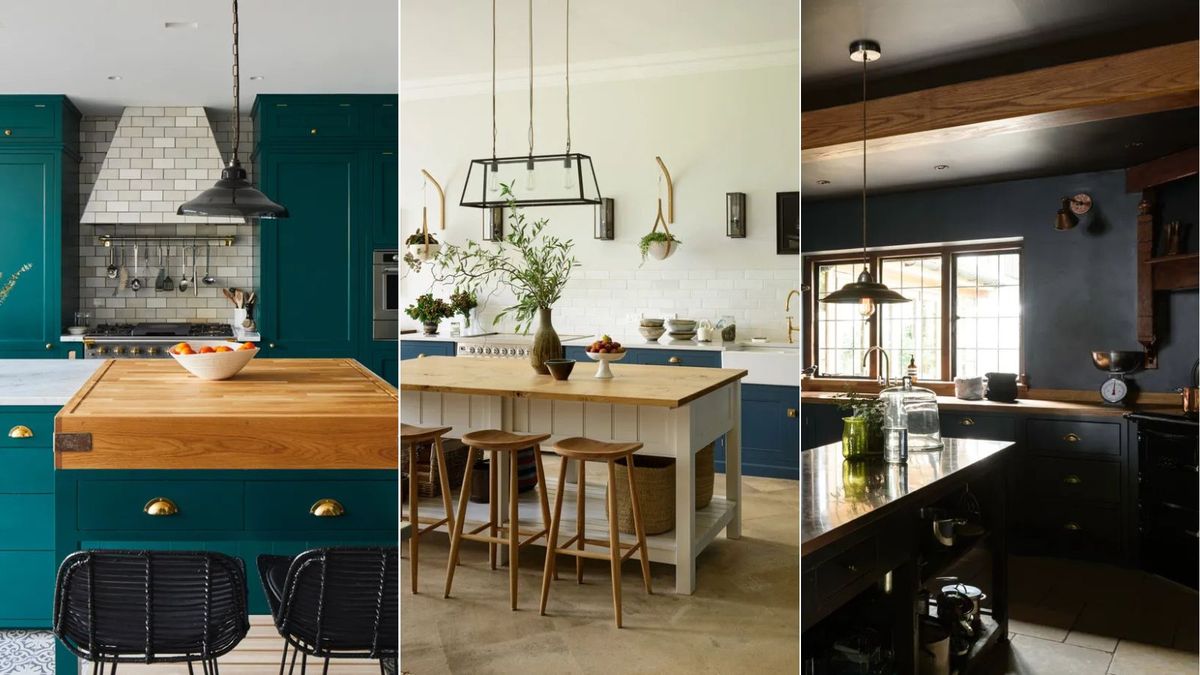Butcher block countertops are re-emerging in kitchen design this year, adding character and traditional style to plans. But before you follow suit, it's important to know the pros and cons to make sure they're right for you.
They add aesthetic appeal and a more rustic, natural element to your space, but there are also some disadvantages to consider. Your kitchen countertop ideas need to be functional and stylish. So don't make hasty decisions before you've really thought everything through.
Here, we turned to interior designers to find out the pros and cons of butcher block countertops—functional and aesthetic—to ensure you have all the information you need before choosing the right material for your kitchen.
Butcher Block Countertop Pros
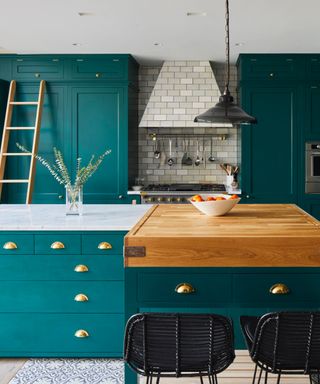
(Image credit: The Vawdry House)
You can completely understand the appeal of butcher block countertops. Traditional, rustic and full of character – it is often the visual advantages that captivate people.
“Butcher block countertops add a natural warmth and inviting character to a kitchen that is difficult to replicate with other materials,” says Laura Lubin of Ellerslie Interiors.
“Their wood tones provide an organic texture and add depth and balance to the overall design, whether you're going for a modern farmhouse, a transitional home, or even a more eclectic aesthetic.” They're also extremely versatile – you can customize the finish to suit your space, from light and airy to lush and dramatic,” she adds.
While butcher block worktops are often thought of as a feature of more rustic kitchens, they can be incorporated into a variety of traditional and transitional schemes – it's all about how you design them to work with the rest of the scheme.
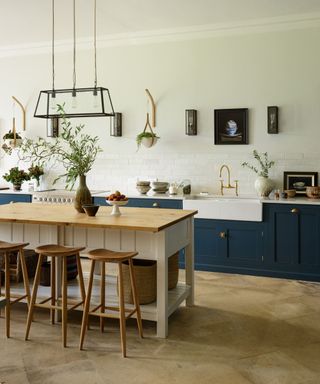
(Image credit: deVOL)
“Wood has a beautiful feel and is naturally warmer to the touch than stone, so it offers a more relaxed and gentle approach to your worktops and is a perfect material for kitchens.” Especially those that blend into living areas because they seem less utilitarian,” adds Helen Parker, creative director of deVOL Kitchens.
But it's not just the visual benefits that make butcher block countertops an attractive choice. “In addition to their aesthetic appeal, butcher block countertops are inexpensive compared to stone options like marble or quartz, making them an accessible choice for homeowners,” explains Laura.
If you're worried about wear and tear on your countertops, natural stones like marble are probably out of the running. However, if you want to stick with a natural material, butcher block countertops are a good option if you're willing to keep up with the maintenance. Laura adds: “They’re practical too – the surface can be sanded and refinished to remove any scratches or scuffs.”
Disadvantages of Butcher Block Countertop
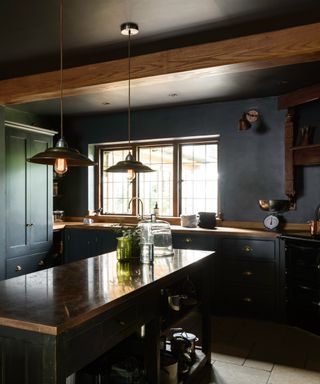
(Image credit: deVOL Kitchens)
Although butcher block countertops offer many visual and functional advantages, there are also some disadvantages. Although they can be sanded and refinished to remove stains, this is a high maintenance task that may be too much of a hassle in a busier household.
“The downside is maintenance.” “They need to be oiled and cared for, so keep them dry (as much as possible) and generally respect their limitations,” advises Helen.
You also need to pay attention to their susceptibility to damage as they become much more visible over time and become more difficult to remove. “Its softer surface is prone to scratches and dents, which may not suit every homeowner’s lifestyle, especially in busy kitchens,” says Laura.
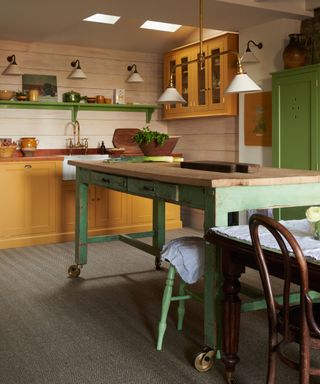
(Image credit: deVOL)
In addition to practical considerations, your worktops must also visually match your kitchen concept. Butcher block countertops are often made from warm wood and will not suit every kitchen style.
“From a design perspective, the warm wood tones might look out of place in ultra-modern or industrial spaces where a cooler, more elegant look is desired,” adds Laura. If your kitchen is more modern or you have wooden kitchen cabinets, butcher block countertops might be out of place.
Butcher block countertops are undoubtedly a beautiful choice, but it really depends on the style of your kitchen and how much maintenance you're willing to put in over time.
Laura explains: “Due to the maintenance requirements and heat sensitivity, it may be less practical for homeowners who prefer low-maintenance solutions.” However, for those who love its natural beauty and are prepared for the care required, the Butcher Block remains a standout choice, that improves both form and function.”
If you're currently debating whether or not to choose butcher block countertops for your kitchen, these pros and cons explained by interior designers should help you make a decision. It's a balance between aesthetics and maintenance – but you really can't go wrong with the characterful design that this traditional material brings.
